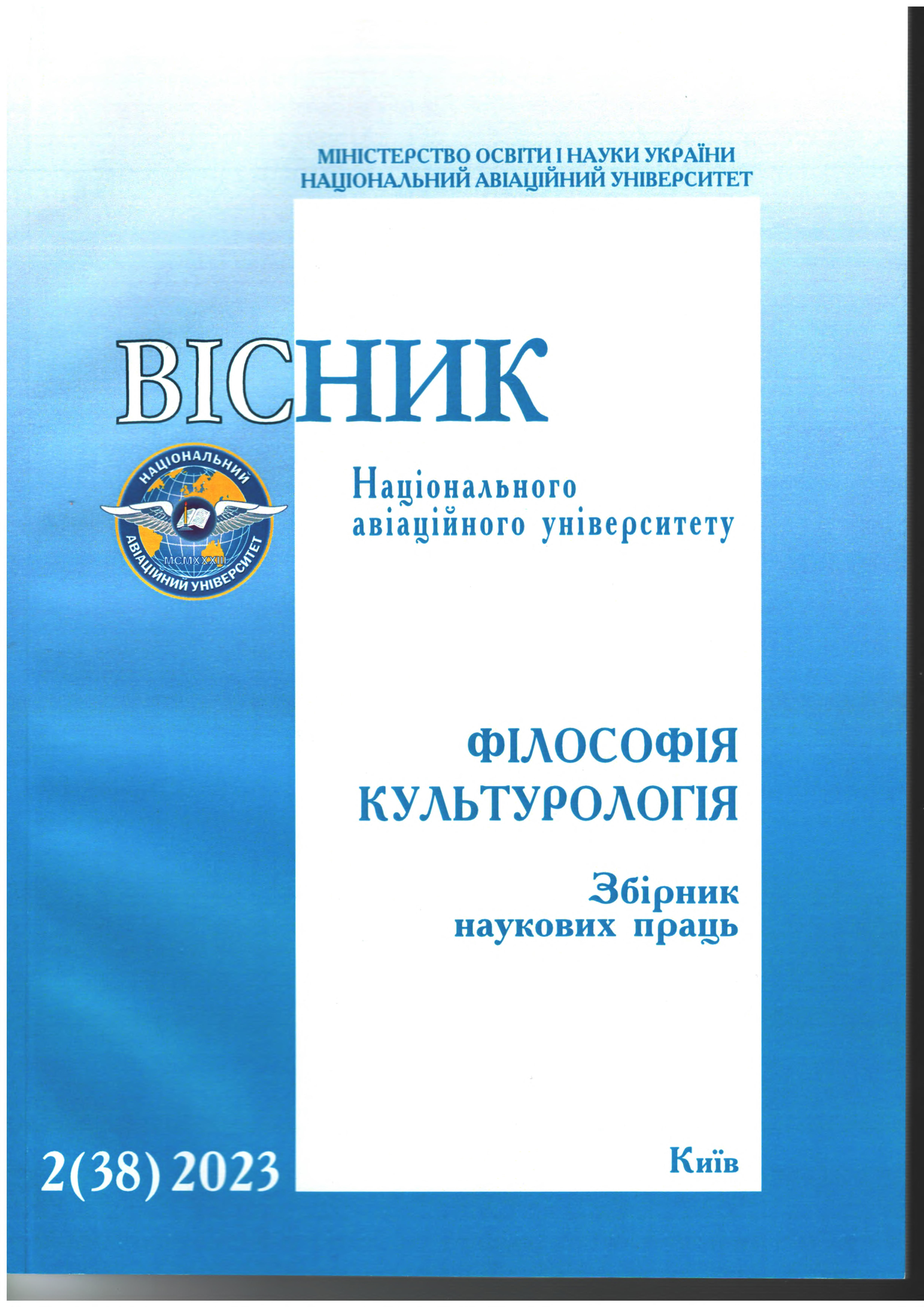POPE JOHN PAUL II ON THE ROLE OF MEDIA AND LANGUAGE OF MASS COMMUNICATION IN THE MODERN WORLD
DOI:
https://doi.org/10.18372/2412-2157.2.18118Keywords:
information, means of mass communication, means of social communication, language of communication, human dignity, electronic age.Abstract
Introduction. The article examines John Paul II's development of the Catholic doctrine of means and language of mass communication. The aim and tasks. The aim of this study is an outline the originality of John Paul II's approach to the problem of the essence of the mass media, the language of communication, and the possibilities inherent in them. To achieve this goal it is necessary to carry out a philosophical and textological analysis of encyclicals and other documents devoted to media issues. The goal and objectives of the article determine research methods. The research uses phenomenological, sociocultural methodological approaches, and analytical and logical methods. Research results. John Paul II viewed mass media as a crucial component of contemporary culture that can play a role in social and cultural advancement, as well as act as an effective tool for evangelization. John Paul II's beliefs about the role and importance of media in society, their essence, and the opportunities they present are a fundamental part of his socio-anthropological teaching. Within the framework of the doctrine of human dignity, the Pope emphasized the special social responsibility of media workers. John Paul II also recognized the need for transforming the language of communication in response to the realities of the modern information society. Additionally, the article focuses on his ideas about the tasks that mass media should undertake in the present-day world and the ways to implement them. Discussion. The problem of mass media, their essence, role in the world, and the language of communication occupy an important place both in the documents of the Catholic Church concerning its social teaching and in the research of scientists. In the second half of the 20th century, the attention of scientists was primarily focused on the media concept of John Paul II. It is regarded as a new word not only in the social doctrine of Catholicism but also in the philosophical understanding of such a phenomenon as mass media with their inherent language of communication. Conclusions. John Paul II's understanding of the essence of mass media and their role in society served as the theoretical foundation for a genuine revolution in communication. This revolution made mass media an integral part of the Church's mission. Through his writings and practical activities, John Paul II demonstrated the humanistic potential inherent in mass media. He also proved that this potential can be realized only if the means and language of social communication are based on fundamental human values.
References
Іоанн Павло ІІ. Енцикліка Вселенського Архиєрея. Місія Відкупителя. Redemptoris Missio. URL: htpp//katekhytyka 6/blogspot.com/2018/01/redemptoris- mission-ii-1990.html
Клешня Г. Перспективи подолання глобальних викликів ХХІ сторіччя в постмодерній реальності. Вісник Національного авіаційного університету. Серія: Філософія. Культурологія: Збірник наукових праць. 1 (37). 2023. С. 28-34. DOI: https://doi.org/ 10.18372/2412-2157.37.17571
Пода Т. Дискурс кризових комунікацій: соціокультурний аналіз. Вісник Національного авіаційного університету.
Серія: Філософія. Культурологія: Збірник наукових праць. 2 (36). 2022. С. 115-120. DOI: https://doi.org/10.18372/2412-
36.16984
Ченбай Н. Соціокультурний зміст інформаційно-комунікаційних технологій в інноваційному суспільстві. Вісник
Національного авіаційного університету. Серія: Філософія. Культурологія: Збірник наукових праць. 2 (20). 2014. С. 114- 117. DOI: https://doi.org/10.18372/2412-2157.20.10602
Церква і соціальна комунікація: Найголовніші документи Католицької Церкви про пресу, радіо, телебачення, Інтернет
та інші медіа. Упор. і наук. ред. М. Перун. Львів: Видавництво Українського Католицького Університету, 2004.
https://issuu.com/ credo/docs/communicat
Góral Jerzy Jan Paweł II o środkach spolecznego. Ethos. Katolicki Uniwersytet Lubelski Jana Pawla II, 4(8): 246–258. http://cw.kul.lublin.pl/Content/24930/32_ethos1989_nr%208_G%C3%B3ral.pdf
Jan Paweł II List apostolski do odpowiedzialnych za środki społecznego przekazu (24.02.2005 https://opoka.org.pl/biblioteka
/W/WP/jan_pawel_ii/listy/szybkir_24022005
Jan Paweł II. Orędzie na XXXVI Światowy Dzień Środków Społecznego Przekazu, w: «L'Osservatore Romano» wyd.
polskie, n. 4/2002, https://opoka.org.pl/biblioteka/T/TA/TAP/media_nau_jp
Ian Pawel II Środki społecznego przekazu w służbie odpowiedzialnej wolności – Orędzie na Światowy Dzień Środków
Społecznego Przekazu, „L’Osservatore Romano”, poi., 2(1981), nr 5, s. 5
Jan Paweł II. W imię przyszłości kultury. Przemówienie do przedstawicieli UNESCO, w: Jan Paweł II. Wiara i kultura, Rzym-
Lublin 1988, s. 64-81
McLuhan M., Fiore Q. War and Peace in the Global Village. https://monoskop.org/images/9/9d/McLuhan_Marshall_Fiore_Quentin_War_and_Peace_in_the_Global_Village_1968.pdf
Szczepaniak Maciej. Komunikacja w mediach według Jana Pawła II. Polonia Sacra 24 (2020) nr 2 (60) S. 99–114
https://www.vatican.va/content/john-paul-ii/pl/ encyclicals /documents / hf_jp-ii_enc_07121990_redemptoris-missio.html.

